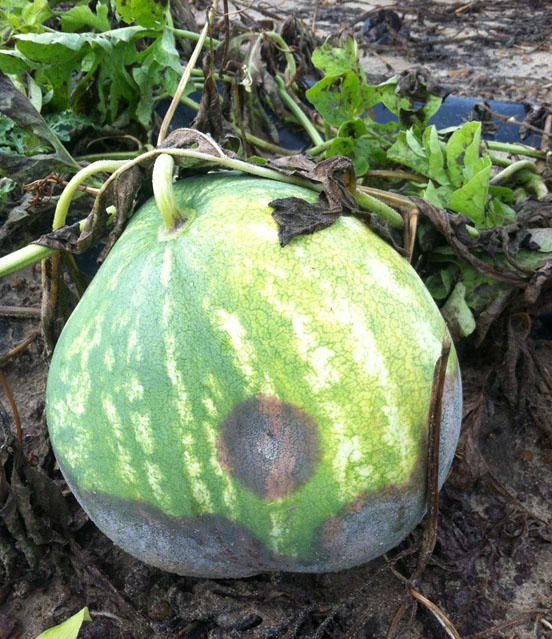
By Clint Thompson
Persistent rainfall in summer and early fall may favor conditions for foliar and soil-borne diseases in vegetable crops, particularly those that are caused by water molds or oomycetes, says Bhabesh Dutta, University of Georgia Cooperative Extension vegetable plant pathologist.
“Saturated soils can promote damping off, seedling blight and root rot in transplanted vegetables, especially in low lying areas of the field,” Dutta said. Diseases like Pythium damping off can be problematic, too.
Disease pressure has been very high this summer, amid rainy conditions and minimal sunshine. Dutta has heard of diseases like Phytophthora root and fruit rot, gummy stem blight and anthracnose being problems for cucurbit farmers.
Growers are planning their fall plantings, so the current field conditions are concerning. Field conditions may preclude growers from getting in the fields in a timely manner to apply fungicides. Disease management could be a challenge moving forward.
“Planting might not be a problem but maintaining the crop can be challenging under wet conditions, like putting out fertilizer, insecticides, and fungicides ,” Dutta said.
According to the University of Georgia Weather Network, Tifton, Georgia received 12.71 inches of rain and 35 rainy days from June 1 to July 19; compared to 6.01 inches and 19 rainy days in 2020 and 6.76 inches and 23 rainy days in 2019. It’s the most summer rain South Georgia has received since 2013.









